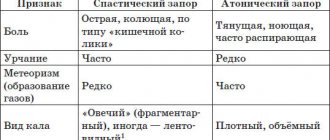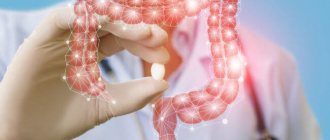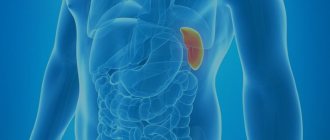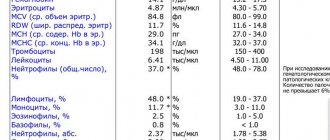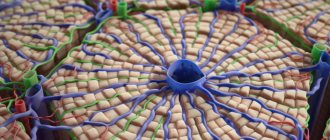Constipation is a very delicate problem. It is not customary to discuss it with friends and relatives. But according to statistics, about 15% of the world's inhabitants suffer from chronic defecation retention. Pathology not only causes discomfort, but also harms health.
Toxins present in feces penetrate into the blood and spread throughout the body. As a result, symptoms of intoxication appear. To avoid such complications, constipation should be treated without delay.
It is worth noting that chronic constipation is a functional disease. Diagnostics plays a special role in choosing the right treatment tactics, so it is often difficult to do without the help of a doctor, especially if we are talking about a serious defecation disorder.
In some cases, the causes of constipation are known to a person, and correction of the condition is not difficult; in others, treatment of the underlying pathology and special measures will be required. In the article we will look at the main causes of constipation and ways to get rid of the disease.
Causes
The most common cause of constipation is a nutritional factor - dietary habits. This problem concerns many adults in the modern world: the frantic pace of life and irregular food intake, the predominance of refined, soft, ready-to-eat foods in the menu - all this leads to a delay in bowel movements and changes in bowel activity.
Researcher Rykova in her work points out that “improper nutrition can provoke the development of constipation, which develops as a result of a decrease in the volume of food and water consumed, a decrease in dietary fiber in the diet, excessive consumption of animal proteins, as a result of increased extraintestinal fluid loss (polyuria) "(Rykova S. M., 2021, p. 28).
Other common reasons include the following:
- irritable bowel syndrome (IBS);
- structural and other disorders of the intestinal structure: lengthening or shortening, strictures (narrowing), etc.;
- anorectal disorders: anal fissure, hemorrhoids, etc.;
- gallbladder disease;
- metabolic disorders, endocrine and neurological diseases;
- systemic pathologies;
- chronic intoxication, etc.
An unhealthy lifestyle is a serious risk factor for developing constipation. This may include consciously suppressing the urge to defecate when a person does not have enough time or is not able to calmly visit the toilet.
Lack of movement also leads to delayed bowel movements - sedentary work or prolonged bed rest due to illness, injury, etc.
Doctors emphasize that constipation can be a side effect of taking certain medications.
For example, researchers Ismailov and Skvortsov provide the following data in their work: “This is most characteristic of atropine, narcotic drugs, some anticonvulsants (difenin), calcium bicarbonate (baking soda). Psychotropic drugs (tranquilizers, antidepressants), some diuretics, iron preparations, aluminum hydroxide (Almagel) can cause constipation" (Ismailov I. Ya., Skvortsov V. V., Fedotova I. V., Kalinchenko E. E., 2021, p. 16).
Safe ways to deal with constipation
To painlessly eliminate the problem, you will need 2 tbsp. l. steam wheat or oat bran in a glass of hot milk. Pour the mixture into a thermos. After 2 hours, cool the broth slightly and drink along with the bran. The effect will occur within 2–3 hours.
Another remedy: 2 tbsp. l. pour senna herbs and 6 prunes with a glass of boiling water. Leave until the dried fruits swell, strain and drink the liquid. Then eat prunes. In a few hours, constipation will only be a memory.
Types of constipation
Constipation is classified according to the reasons for its development into the following types:
- Primary: functional constipation, including those developing against the background of IBS or weakened defecation reflex, as well as organic - structural and inflammatory changes in the intestine.
- Secondary: peptic ulcer, diseases of the endocrine system and nervous system, intoxication, systemic muscle damage, etc.
According to the mechanism of development and etiological characteristics, the following types of constipation are distinguished: +
- nutritional – explained by the specifics of the diet;
- neurogenic - associated with disruption of the nervous system;
- psychogenic - develops against the background of psycho-emotional factors, including the so-called false shame, inability to visit a public toilet, etc.;
- proctogenic - constipation due to diseases of the anorectal area, fissures, narrowing, inflammatory changes accompanied by pain;
- iatrogenic - associated with taking medications;
- toxic - formed against the background of human poisoning with lead, mercury vapor, etc.;
- constipation in the presence of mechanical obstacles in the form of tumors, narrowings, scar changes, benign formations such as polyps, etc.
According to the characteristics of the course in adults, acute and chronic constipation are distinguished. An acute condition may include stool retention for the first time recently (up to three months). There is no bowel movement for several days.
Chronic constipation has clear criteria. The doctor will make such a diagnosis if there are simultaneously two or more signs observed over the past 3 months:
- bowel movements less than three times a week;
- dense, dry, fragmented feces;
- the need to strain in 25% of cases;
- straining takes at least ¼ of the defecation process;
- need for manual assistance during defecation;
- feeling of incomplete bowel movement, foreign object in the rectum, pressure.
Chronic constipation may be accompanied by other symptoms.
Characteristics of signs
Symptoms of the pathological condition include the following signs of its development:
- Feeling of discomfort in the retroperitoneal space.
- Periodic, cramping pain.
- Abdominal distension.
- Suppressing the need to eat.
- Nausea.
- The feeling of need to empty the intestines is not supported by the actions of the body
The systematic accumulation of feces inside leads to reverse diffusion of decay products through the intestinal lining, which characterizes the development of intoxication of the body. The first sign of an imbalance of substances is a deterioration in the visual condition of the skin. When pores are clogged and a pustular rash appears, it is possible to positively diagnose a change in the metabolic process in the body, which is observed against the background of constipation.
Symptoms and manifestations
Constipation is accompanied by various symptoms depending on the reason for which it occurs. In rare cases, stool retention is the only worrying sign.
The rhythm of bowel movements varies from person to person. Therefore, it is difficult to call constipation a bowel movement that occurs once every 2 days, if such a rhythm is natural for a person and persists throughout adult life, and there are no alarming symptoms.
Constipation is defined as having a bowel movement less than once every 2-3 days. Other symptoms include abdominal discomfort and the need to strain.
It is worth noting that defecation during constipation can be daily, but at the same time a very small amount of feces is separated (less than 100 g), and the feces themselves are dense, dry, fragmented (the so-called sheep or bean-shaped feces). When the intestinal lumen is narrowed, the contents may have a ribbon-like shape.
In some cases, a symptom of constipation is stool with mucus. With a long delay in emptying, diarrhea develops, and the feces will be heterogeneous: the first portion is dense and compressed, the second is liquid with mucus.
With constipation, abdominal pain of various localizations, a feeling of discomfort, pressure, irritation, and heaviness most often occur.
In irritable bowel syndrome, constipation is accompanied by pain, especially before bowel movements. The pain subsides after natural bowel movements or emptying as a result of taking laxatives. Stool retention is often accompanied by flatulence - increased gas production, rumbling in the stomach, frequent passage of gas, and bloating.
It should be understood that a large amount of gases aggravates the problem and slows down the movement of feces through the intestines.
With chronic constipation, symptoms of general intoxication sometimes develop, which is associated with constant poisoning of the body by the decomposition products of feces. Many patients note decreased appetite, fatigue, headaches and dizziness, unhealthy complexion, dry skin, decreased mood, nausea, lack of appetite, deterioration in performance and concentration.
With a special character, sleep disorders, neurasthenic disorders, suspiciousness and anxiety often develop.
What are the dangers of constant constipation?
Proper nutrition to prevent constipation
The transition of sometimes occurring manifestations of stagnation in the final section of the intestine into a protracted, long-term form can be facilitated by the following pathological conditions:
- The process of inflammation of the rectum and sigmoid colon.
- The weakening of the motor activity of the initial part of the large intestine provokes the appearance of signs of partial return of masses to the small intestine with the development of enteritis.
- Dysfunction of the bile ducts with subsequent inflammation of the liver tissue.
- The most common complication of constipation is hemorrhoids, which characterizes the process of inflammation of the vasculature of the rectum with the formation of varicose nodes. The structures become inflamed due to frequent congestion, which causes an increase in pressure in the vessels of the organ during physical efforts to push the contents of the intestines out.
- Cracking of the anal sphincter with inflammation of adjacent tissues, which determines a pathological condition such as paraproctitis.
- Against the background of chronic constipation, the large intestine can expand and lengthen, which further aggravates the situation with the movement of masses towards exit from the body.
- The formation of a tumor process in the intestinal tissues, the development of which is facilitated by limiting the intake of fiber from food, leading to the concentration of dangerous compounds that provoke the transformation of the cellular composition of tissues into a malignant tumor. Warning signs of such constipation include sudden weight loss, weakness, and blood in the stool.
Complications
The causes and consequences of constipation may be interrelated. For example, with proctogenic constipation, complications in the anorectal area develop faster: if defecation delay is associated with the appearance of hemorrhoids, then this condition will quickly lead to exacerbation of inflammation, thrombosis and other complications.
If stool retention does not occur as a result of anorectal pathologies, it quickly leads to them - it is one of the main causes of anal fissures, accompanied by bleeding, as well as complications associated with damage to the mucous membranes. These include cryptitis, paraproctitis, and pararectal abscesses that require urgent surgical intervention.
Complications from the digestive system such as:
- inflammatory diseases: colitis, proctitis, etc.;
- intestinal diverticulosis;
- stretching of the walls of individual sections of the colon, or megacolon.
One of the most serious complications of prolonged delay in bowel movement is acute intestinal obstruction. It requires urgent surgical intervention. Obstruction, in which there is no timely assistance, threatens to result in necrotic changes and death.
A delayed consequence of prolonged constipation may be deterioration of chronic diseases. Chronic intoxication with waste products that the body cannot get rid of can become one of the causes of exacerbation of allergic diseases, deterioration of the body's resistance to infections, as well as exacerbation of dermatological diseases.
The accumulation of feces increases the risk of developing diseases of the genitourinary system, since surrounding organs are compressed. Thus, stool retention can aggravate the condition of diseases of the bladder or reproductive organs in women.
With chronic constipation, the risk of developing atherosclerosis significantly increases due to increased cholesterol levels. In addition, delayed bowel movements are a risk factor for colorectal cancer.
Is constipation dangerous? Yes, because it can cause tumor diseases. There are several mechanisms for the development of malignant neoplasms. One of them is the accumulation and stagnation of feces in the intestines, which leads to the release of carcinogenic compounds. Their long-term effect on the intestinal walls leads to tissue changes.
Regular bowel movements are one of the mechanisms for the disposal of “bad” cholesterol. In the absence of timely release of the digestive system, lipid metabolism changes, and the likelihood of the formation of atherosclerotic plaques in the lumens of blood vessels increases. This leads to a significant increase in the risk of cardiovascular diseases, heart attacks, and strokes.
Chronic constipation in older people
Elderly people, like children, are a special category of patients who turn to gastroenterologists with chronic constipation. According to statistics, in older people, stool retention occurs 5 times more often than in young people4, and they are associated mainly with reduced intestinal tone and slower peristalsis4.
The following factors predispose to regular bowel problems4:
- Dietary features, in particular, reducing the amount of food and rarely consuming coarse foods - due to problems with teeth and stomach, crushed refined foods, low in fiber, begin to predominate in the diet.
- Decreased physical activity due to muscle weakness, diseases of the musculoskeletal system and cardiovascular system.
- Weakening of the muscles of the anterior abdominal wall and pelvic floor due to a general age-related decrease in muscle volume and loss of muscle tone4.
- Reduced intestinal motility due to age.
- Slowing of digestion due to decreased activity of digestive enzymes and changes in the composition of intestinal microflora4.
- Taking a large number of medications, some of which cause problems with stool4.
- Abuse of addictive laxatives4.
The danger of chronic constipation in older patients is the high risk of fecal stone formation. Prolonged presence of feces in the intestines and their pressure on the intestinal wall can cause the formation of fecal ulcers and the development of cancer4. According to statistics, the risk of colorectal cancer in the presence of constipation is 1.48-2 times higher than in people without constipation4.
In old age, the so-called “alarming symptoms” require special attention:
- changes in the thickness and shape of stool,
- progression of bowel problems
- the appearance of diarrhea after prolonged retention of stool,
- the presence of blood in the stool,
- pale skin caused by anemia,
- general weakness and weight loss.
The appearance of the above symptoms over the age of 50 is a reason to immediately contact a doctor.
Up to contents
Treatment of constipation
If the pathology is not caused by diseases of the internal organs, the answer to the question of how to treat constipation in adults is simple. The main methods of restoring the functioning of the gastrointestinal tract are an active lifestyle and the use of products with a laxative effect.
Experts recommend:+
- introduce vegetables, rye bread with bran, fermented milk products, dried fruits, nuts, legumes into the diet;
- more often eat boiled beets seasoned with vegetable oil;
- replace butter and sour cream with unrefined vegetable oil;
- move more and walk in the fresh air;
- strengthen the abdominal muscles by performing special exercises;
- drink more pure still water - at least 8-10 glasses per day;
- stop smoking and limit alcohol intake;
- do not abuse enemas - they should be used only in extreme cases.
Thanks to these simple rules, it is possible to cure constipation in adults. However, in some cases, changing your diet and physical activity does not help. You have to resort to taking laxatives.
It is known that in the treatment of constipation, especially functional constipation, adding dietary fiber to the diet is effective. Include fresh vegetables and fruits, dried fruits, and cereals in your daily diet. An important component of treatment is taking laxatives, especially if you need to solve the problem in a short time. That being said, some laxatives (bulk laxatives) work on the same principle as dietary fiber from plants and supplements.
Bulk laxatives work as follows: they absorb water, increase the volume of stool, make it softer, changing the consistency, and stimulate the intestinal walls to contract. Faster, more comfortable, predictable bowel movements occur. Fibers can be synthetic and natural, of plant origin.
The natural preparation “Fitomucil Norm”, created on the basis of plant fiber, helps to quickly and delicately cure constipation in children and adults. This is what doctors often recommend. There are no flavoring additives or dyes in the modern English biocomplex.
It contains only natural ingredients - the shell of plantain seeds and the fruits of home plum. The natural composition is absolutely safe, so even children aged 3 to 14 years can drink the product as prescribed by a doctor.
There are few contraindications for use: individual intolerance to the components, acute inflammatory diseases, gastrointestinal obstruction.
"Fitomucil Norm" is not addictive even with long-term use. The product is recommended for use by the Russian Society of Obstetricians and Gynecologists and the Russian Association of Gastroenterologists. They can treat constipation in women while bearing and feeding a child.
The drug "Fitomucil Norm" has a complex effect on the body:
- has a gentle effect on the gastrointestinal tract, providing delicate cleansing;
- helps normalize your own microflora;
- removes toxins, reduces cholesterol and blood sugar levels;
- fights hunger;
The product “Fitomucil Norm” is a gentle and effective solution to a delicate problem. Before treating constipation, be sure to consult a gastroenterologist. The doctor will prescribe the necessary tests and determine the cause of the pathology.
There are other general recommendations for treating constipation in adults. It is important to eat small meals and avoid episodes of overeating or prolonged fasting. The best option is to eat at least 5 times a day.
Develop the healthy habit of getting out of bed immediately after waking up. Try to wake up so that you have enough time to go to the toilet in the morning (at least half an hour - the time the gastro-colitic reflex is triggered), monitor the regularity of bowel movements, try to build an individual rhythm of natural bowel movement.
This will be difficult for those who work irregular hours. If possible, it is better to choose an activity that will allow you to adhere to a strict daily routine.
If the reason lies in taking medications, stopping them or reducing the dosage without consulting your doctor is strictly not recommended. Visit a specialist and tell them that you are suffering from a side effect of the medication. The doctor will select an alternative or tell you about ways to overcome the problem without changing the drug.
In cases where constipation is caused by organic and other pathologies, treatment should be aimed at eliminating the underlying disease. So, for diabetes mellitus, the course of therapy will be selected by an endocrinologist, for liver diseases - a gastroenterologist or hepatologist, for disorders of the conduction of nerve impulses and diseases of the nervous system - a neurologist, etc.
Diagnosis and examination for constipation
Diagnosis of constipation begins with determining its nature4. A detailed questioning and examination of the patient allows the doctor to determine whether colostasis is acute or chronic, to exclude nutritional, that is, nutrition-related, causes of stool disorders, and if they are identified, to select a diet to normalize stool4.
If it is determined that there are no food causes of stool retention, first of all, it is necessary to exclude the most dangerous tumor diseases4. For this purpose, X-ray examinations of the intestines are carried out, as well as sigmoidoscopy and colonoscopy - examination of all parts of the large intestine using special endoscopic equipment.
Ultrasound, MRI and laboratory tests of blood, urine, and feces help diagnose diseases of internal organs and endocrine diseases accompanied by problems with defecation.
Taking into account the fact that stool retention may be associated with psycho-emotional disorders, diseases of the nervous, endocrine, and reproductive systems, consultations with a psychotherapist, neurologist, endocrinologist, gynecologist (for women), urologist or andrologist (for men) are required4.
In the absence of diseases of the internal organs, the doctor may prescribe general treatment for constipation, including diet, laxatives, thinning and softening of stool4.
The duration of treatment usually does not exceed 1-2 months4. If the problem remains unresolved, a further in-depth examination is carried out aimed at completely excluding intestinal pathology, establishing the nature of intestinal motility disorders, assessing the composition of the intestinal microflora, the condition of the pelvic floor and the functioning of the anal sphincters. After analyzing the results, the doctor selects the necessary treatment.
Up to contents

